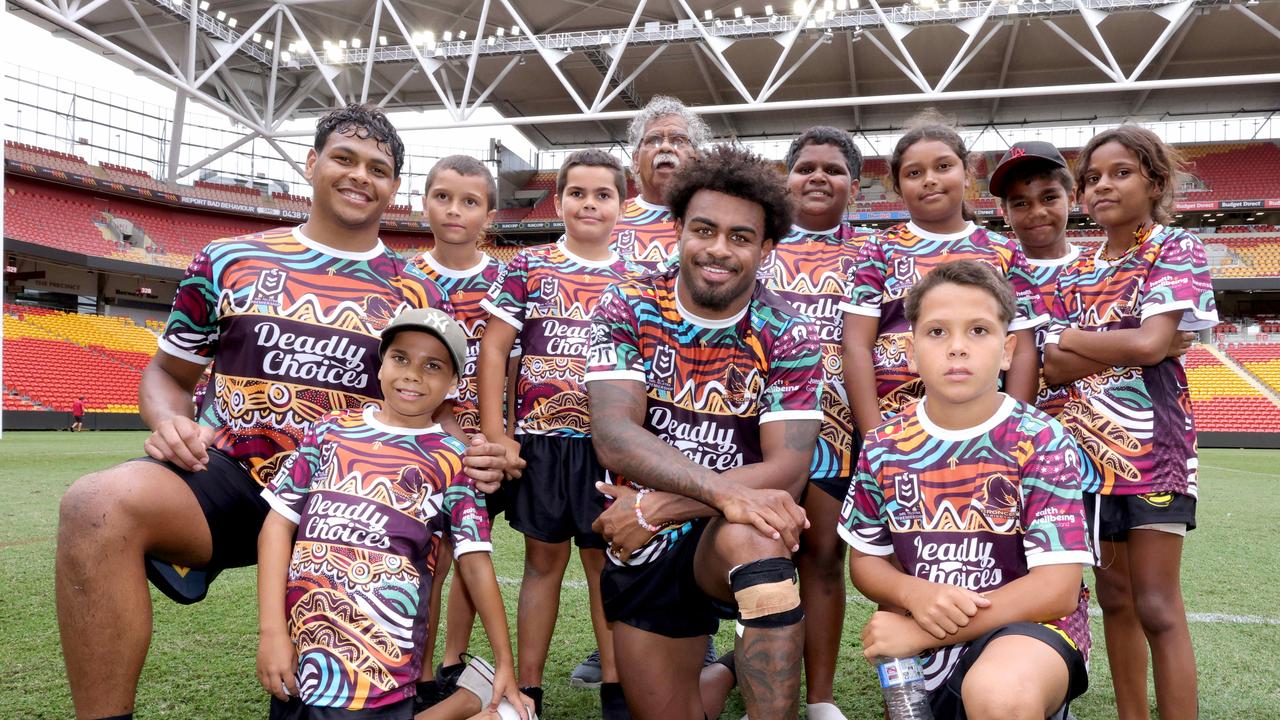
Sydney Roosters coach Trent Robinson is firm in his belief that Spencer Leniu is not a racist and hopes that the aftermath of his eight-match ban for calling Brisbane’s Ezra Mam “a monkey” can lead to a “turning point” in the use of language in sport and society.

The Samoan international admitted to making the slur during the opening round game in Las Vegas but told the judiciary panel on Monday night that it was not meant to be racially motivated, and that it was a term he and others had used in jest.
Robinson stated that the club had accepted the decision and that there was no need to debate the punishment, despite some doing so both publicly and privately.
“In regards to the incident, my stance is that if anyone believes that Spencer is racist, they are mistaken,” he said.
“If we understand the definition of racism, it’s when you try to use your power to belittle and degrade someone.”
“If you believe that an immigrant with parents from Samoa and New Zealand, living in Mt Druitt, is attempting to exert power over someone, then you are mistaken. He is not racist. The focus was on his language use. If anyone believes they can judge others based on their speech in society, then many people are guilty of that, and that is where I take issue.”
Mam submitted a 12-paragraph statement to the judiciary detailing the emotional distress he and his family endured. Leniu admitted during the hearing that it wasn’t until the following morning when an Indigenous woman explained the term’s offensiveness to him that he realized its impact.
“It has been a transformative experience for him,” Robinson commented on Leniu, who was making his club debut.
“It has been a very humbling week for him. He has been incredibly respectful and honest throughout, and he has never questioned the punishment or anything like that.
“It’s a time for him to move forward and grow as well.”
The incident in Vegas was placed on report but was not communicated to the Roosters, which is why Robinson acknowledges he misspoke when he said, “he (Mam) obviously made the complaint but that doesn’t mean it’s right,” in the post-match press conference.
“I should have handled that differently,” he admitted.
“But we had no communication about the incident, there was no announcement in the stadium, no microphone, and I went into that press conference unsure of what had occurred on the field.
“I felt like people had already judged him guilty, and I just wanted to say that there was a process, but the way I expressed it was incorrect.”
The issue of presumed guilt has been a significant topic in rugby league over the past 10 days, with several prominent players advocating for Leniu to be banned for 12 matches before his hearing.
When asked about whether this needed to change, Robinson was measured in his response, noting that players and coaches are not supposed to give their views on hearings before they occur.
“This wasn’t a high tackle. This was very different,” he explained.
“What was being judged here wasn’t just our sport, but language and racism. I don’t have an issue with people speaking out when something strongly affects them. However, when it comes to making judgments about NRL action, that is up to the NRL to decide.”
Robinson hopes that this incident leads to a societal shift away from using language that, while not intentionally hurtful, has reached a point where it is no longer acceptable in any context.
“This is a language issue. It’s a common form of communication among people of all ages, starting from a young age in sports, on the playground, and continuing into people’s 20s and 30s who often use this language,” he said, referring to a comment made by Manly’s Haumole Olakau’atu, who said he had repeatedly been called “coconut” on the field.
“It’s not because they’re racist or trying to exert power – it’s banter between guys. I’m not saying this is right, but this is what’s being examined. We need to change the way we speak to each other.
“To label Spencer as a racist is completely untrue, but is that language appropriate? Absolutely not. But is it happening on a regular basis? Yes, it is.
“This should be a turning point for language and how people within the same group and community use this language. This cannot continue.
“We used different language 20 or 30 years ago that we wouldn’t use today, and this needs to change.”







